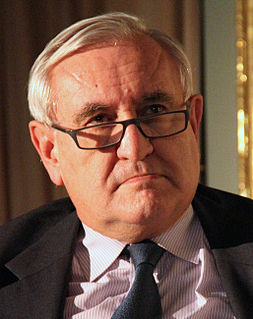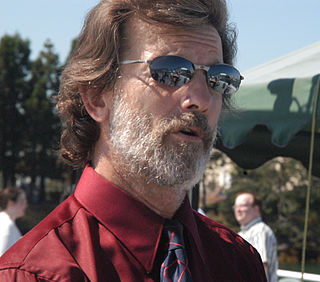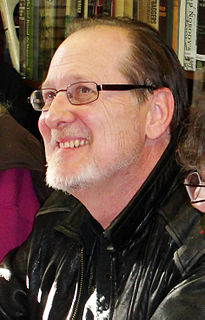A Quote by Ambrose Bierce
HARMONISTS, n. A sect of Protestants, now extinct, who came from Europe in the beginning of the last century and were distinguished for the bitterness of their internal controversies and dissensions.
Related Quotes
If you go back a century in Europe, all over the place people were speaking different languages. There were dozens of languages in France and Italy, and they're all called French [and Italian], but they were not mutually comprehensible. They were different languages. And they have mostly disappeared in the last century or so. Some are being preserved, like Welsh, some are being revived, like Basque or Catelan to some extent. There are plenty of people in Europe who can't talk to their grandmother because they talk a different language.
We were terribly excited, and I think we took it on our shoulders that we were creating the 21st century in 1971. That was the idea. And we wanted to just blast everything in the past, rather like the vorticists did at the beginning of the century in the Britain or the dadaists did Europe, you know. It was the same sensibility of everything is rubbish, and all rubbish is wonderful.
The Catholics have a Pope. Protestants laugh at them, and yet the Pope is capable of intellectual advancement. In addition to this, the Pope is mortal, and the church cannot be afflicted with the same idiot forever. The Protestants have a book for their Pope. The book cannot advance. Year after year, and century after century, the book remains as ignorant as ever.
One by one, these governments came undone, and were forced into IMF tutelage (and national illegitimacy) by the careening oil prices, the debt imbroglio, and falling terms of trade. The last of these governments to fall were the Communist regimes of eastern Europe, which have now gone the way of other Third World countries. The second in the cascade of bifurcations is thus symbolized by 1989.
In the 19th century, when Muslims were looking at Europe as an example, they were independent; they were more self-confident. In the early 20th century, with the fall of the Ottoman Empire, the whole Middle East was colonized. And when you have colonization, what do you have? You have anti-colonization.
A robust internal auditing program shows its presence both at the beginning and end of continual improvement projects. In the beginning, internal audits identify opportunities for improvement, at the end, internal audits provide a mechanism for monitoring the implemented improvement in order to sustain its benefits for the long term.
Sometimes at lectures I am asked: how would the champions of the last century play today? I think that, after making a hurried study of modern openings, and watching one or two tournaments, the champions of the last century, and indeed the century before that, would very quickly occupy the same place that they occupied when they were alive.
The Thirty Years' War, 1618-1648, was a series of conflicts that became the last great struggle of religious wars in Europe. It was fought almost exclusively on German soil...but before the war ended, it involved most of the nations of Europe. The underlying cause of the war was the deep-seated hostility between the German Protestants and German Catholics - with the Jesuits and Cardinal Richelieu, who was the real ruler of France, fanning the fires to accomplish their ends.
Misha's importance and distinctiveness are beginning to be noticed, there's beginning to be some kind of rip-tide here that will soon become a wave of recognition for a book that the world is beginning to catch up to... We weren't ready before. We'd better be ready now. Because it's the 21st century, any minute now, and that means that Misha's time has come. In more ways than one.
I do not know if the doctrine that the nation-state arose in the 19th century was still being taught:;... but it is erroneous. The nation-state reaches back far into the origins of Europe itself and perhaps beyond. If Europe was not always a Europe of nations, it was always a Europe in which nations existed, and were taken for granted, as a basic form of the State.

































